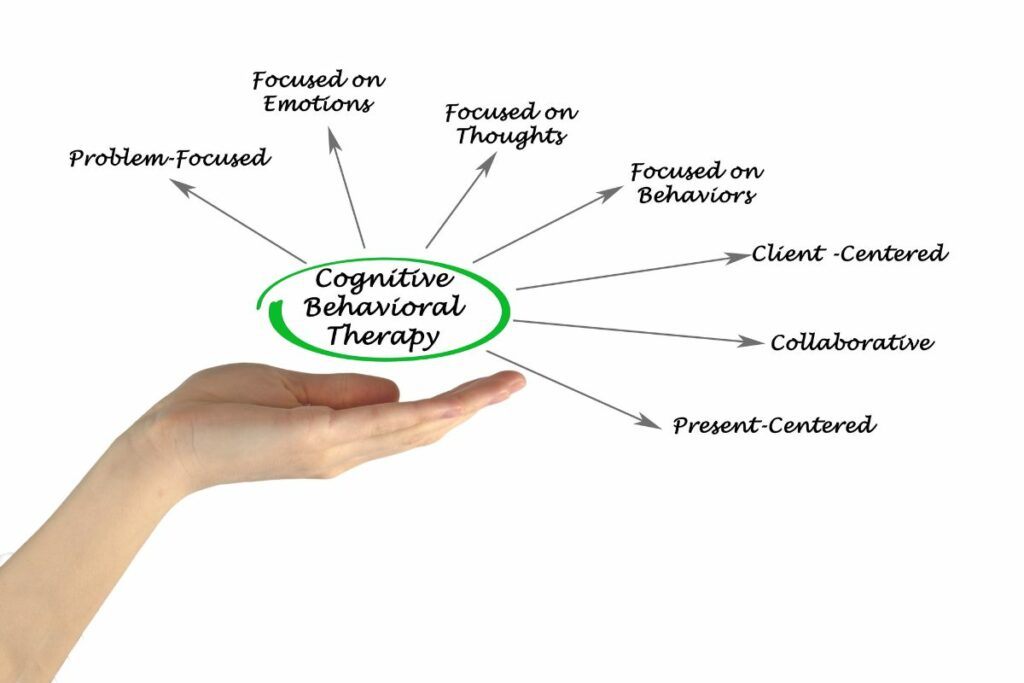If you are exploring options for different types of therapy, then you may have heard of NLP and CBT. NLP stands for Neurolinguistic Programming, and it refers to a type of therapy that was first invented in the 1970s.
While CBT stands for Cognitive Behavioral Therapy which is another type of therapy that was also created in the 1970s.
In the years since these types of therapy were created, they have become incredibly popular. CBT is one of the most popular forms of therapy in the world, and it is commonly used in many different countries.
Likewise, NLP has become very popular because of the impact that it can have on the lives of people participating in this therapy.
In this guide, we’re taking a look at both NLP and CBT to find out what the difference is between the two, and ultimately decide which one is better. Read on to find out more.
What Is NLP?

First things first, let’s take a look at what NLP is. Well, as we have said, NLP stands for Neurolinguistic Programming and it is a form of therapy that targets unconscious thought patterns, aiming to make changes to your thinking automatically.
There are a lot of forms of therapy that target the way that you think and behave, but most of these therapies will target your conscious thought processes. They will require you to actively consider things that are happening and change your thought processes consciously.
But, NLP works differently as it requires you to change the way that your brain works so that your mind will subconsciously make these changes – meaning you do not need to remember to think differently, your brain will do this without hesitation.
NLP is a lot of work, but it is a lot of work in a very different way from other forms of therapy – such as CBT. Unlike other therapies which require you to talk in length about situations in order to get a conscious understanding, this is not required for NLP.
NLP doesn’t require those participating in it to share large amounts of information. Instead, most therapists will be able to make progress with their patients through NLP without requiring a lot of information.
Through NLP, the participant will be given a toolkit of techniques that will help to adjust their mindset and allow them to approach life differently.
It will provide the participant with a lot of solutions that will enable them to make changes in their life without consciously having to do so.
NLP is very different from CBT because CBT is well-known as a “talking therapy”, while NLP only requires a minimal amount of talking.
It is in no way as intense as CBT when it comes to discussing personal situations, and that is why many people who struggle with talking therapies lean towards NLP.
Pros
- Helps improve personal skills.
- Can be used for self-reflection.
- Effective in lots of different scenarios – including commercial situations.
- Doesn’t require too much talking.
- Allows the participant to make changes to their subconscious thought processes.
- Very helpful for those who cannot click with CBT.
Cons
- Techniques are somewhat limited.
- It will not be helpful in all scenarios.
- The process is a lot less personal than CBT.
What is CBT?

Moving on, let’s take a look at CBT. As we have established, CBT stands for Cognitive Behavioral Therapy, and since it was first created in the 1970s, it has become incredibly popular.
Just like NLP, CBT aims to improve subconscious thinking, but it differs from NLP as CBT isn’t actually compatible with adjusting subconscious thought.
That is why this process instead aims to allow those participating in CBT to build a conscious understanding of the subconscious connections between feelings and thoughts, and actions and behavior.
As humans, when we feel a certain way, it is very easy to allow our thought processes to run away from us. But CBT aims to allow the participant to prevent their thoughts and feelings from leading to negative actions and behaviors.
Most of the time, when our thought processes run away from us, it is due to subconscious triggers. That is why CBT aims to target these triggers before you subconsciously react to them.
Unlike NLP, CBT requires the participant to talk in-depth about their life, scenarios that they find themselves in, and what triggers them to react in a certain way to some triggers.
In order for CBT to be effective, the participant will have to talk honestly about their problems as this is the only way that the practitioner will be able to help the participant.
The raw honesty required for CBT to be effective is something that does cause some people to struggle with CBT.
There are a number of ways in which CBT and NLP are similar, however, the main difference between the two is the amount of talking required. For CBT to be effective, the practitioner will require a lot of information from the participant.
While NLP will require the participant to disclose a lot less information in order for it to be effective.
Pros
- Can be completed in a relatively short period of time.
- In some scenarios, it can be just as effective as medication.
- Focuses on changing behaviors for long-term benefits.
- Skills developed through CBT can be transferred to other areas of life.
- Very structured and organized.
- Can really dig into the problem in depth and get to the bottom of it.
Cons
- It will not work if the participant is not fully committed to the course of therapy.
- Involves facing your emotions and anxieties head-on, and this can be stressful.
- Only addresses the individual’s capacity to change themselves and not the wider problems.
Which Is the Better Option?
Now that we have taken a look at what both NLP and CBT are, let’s take a look at how they compare to one another.
Ultimately, which will work better for you will come down to personal preference, how confident you are in speaking about your own personal circumstances, and how committed you are to the therapy.
Out of these two forms of therapy, there is no denying that CBT is definitely the form of therapy that is more widely known.
However, that doesn’t necessarily make it better. In reality, these therapies are very different from one another, so the best option for you will depend on what you are trying to achieve.
CBT aims to provide a framework that allows you to make sense of problems that you may be experiencing and change the underlying patterns so that the problems don’t reoccur.
In contrast, NLP targets the subconscious and underlying patterns and strategies so that the problems do not occur again in the future.
NLP will target the subconscious part of your brain, allowing you to make changes without realizing it, while CBT will require you to actively work at changing your patterns.
That is why one isn’t necessarily better than the other, instead, it will depend on your own personal preference.
Summary
In short, both NLP and CBT are excellent forms of therapy that can allow you to change thought processes and adjust the way that you react to certain scenarios.
They differ as CBT requires a lot of talking, while NLP allows the participant to disclose less information, but get the same results. So, ultimately, which is better will depend on your own personal situation.
Thanks for reading!


May I simply just say what a comfort to uncover an individual who actually knows what they are talking about on the internet. You definitely realize how to bring an issue to light and make it important. More and more people have to look at this and understand this side of your story. Its surprising you aren’t more popular because you surely possess the gift.
I definitely wanted to compose a note so as to thank you for those fabulous suggestions you are showing at this website. My rather long internet lookup has at the end been honored with beneficial details to write about with my contacts. I ‘d claim that many of us website visitors are definitely fortunate to live in a wonderful site with so many special people with great things. I feel rather happy to have discovered the web pages and look forward to many more excellent times reading here. Thanks a lot again.